When the European explorers discovered the New World it was already inhabited by millions of Native Americans. Despite not possessing a writing system the Native Americans had a vast oratory literary collection of culture, history, and religion. The literature of the early explorers was mostly narratives and letters.
These writings describe the New World and the explorers’ travels and experiences. Each literary system was unique reflecting the different culture, background, and beliefs of each respective group. Eventually the systems come together and evolve into the literature of modern America. To understand modern literature one has to look back at the beginning of American literature.
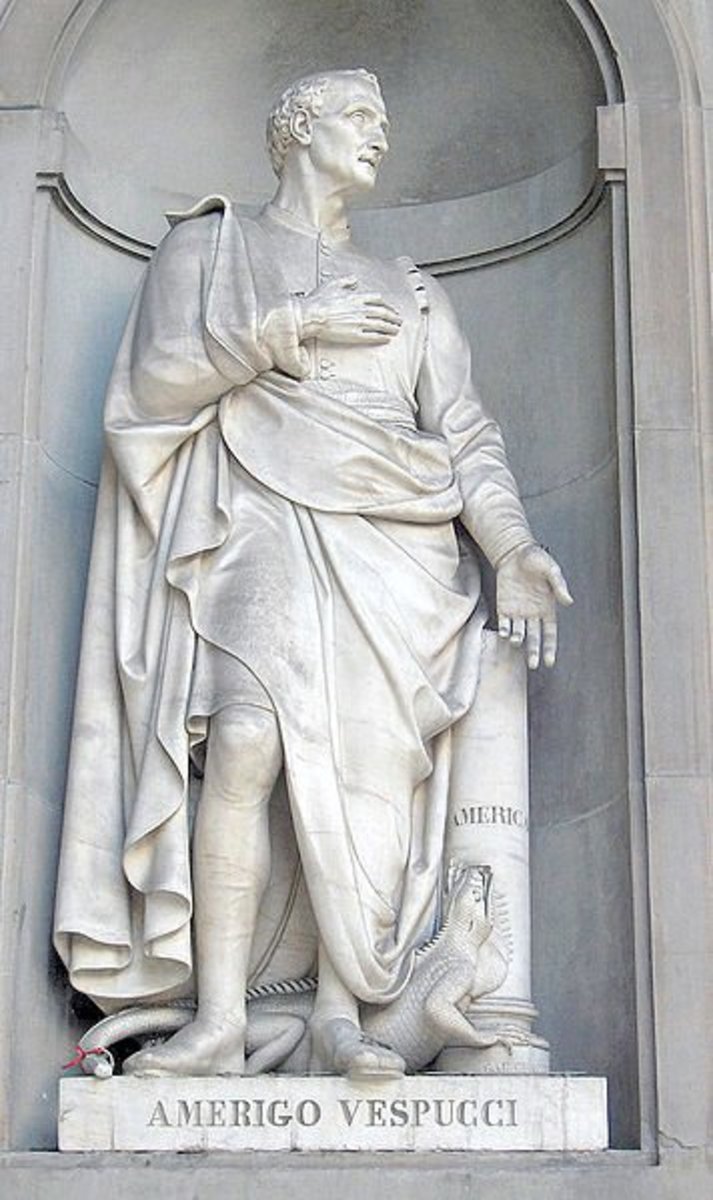
Historical Aspects
Amerigo Vespucci, an Italian mapmaker, discovered America 1507. European explorers found America as a result of questioning the land and water mass of the world by Renaissance scholars, and in the search for riches, wealth, and trading routes to the Far East.
When European explorers first reached the New World it appeared to be a paradise. This naïve presumption was short-lived as the Explorers discovered the Native American people, who the Explorers believed to be pagan savages. The Native American culture was steeped in tradition and honoring the earth. They welcomed the newcomers and helped them to survive the harsh winter.
The explorers brought European diseases to the New World that the Native Americans had no immunity to. Many died as a result of these diseases. The explorers took advantage of the Native Americans’ hospitality and ignorance of weapons and overtook them. They manipulated the Native Americans, raped and killed their people, and took many as slaves.
The European explorers traveled on behalf of monarchs. This behavior was accepted and encouraged by these monarchs, and they took over the land as their own taking it from people they considered to be pagans. Early American literature reflects the distinct differences in the Native Americans and European Explorers. American literature has evolved from these diverse early writings.
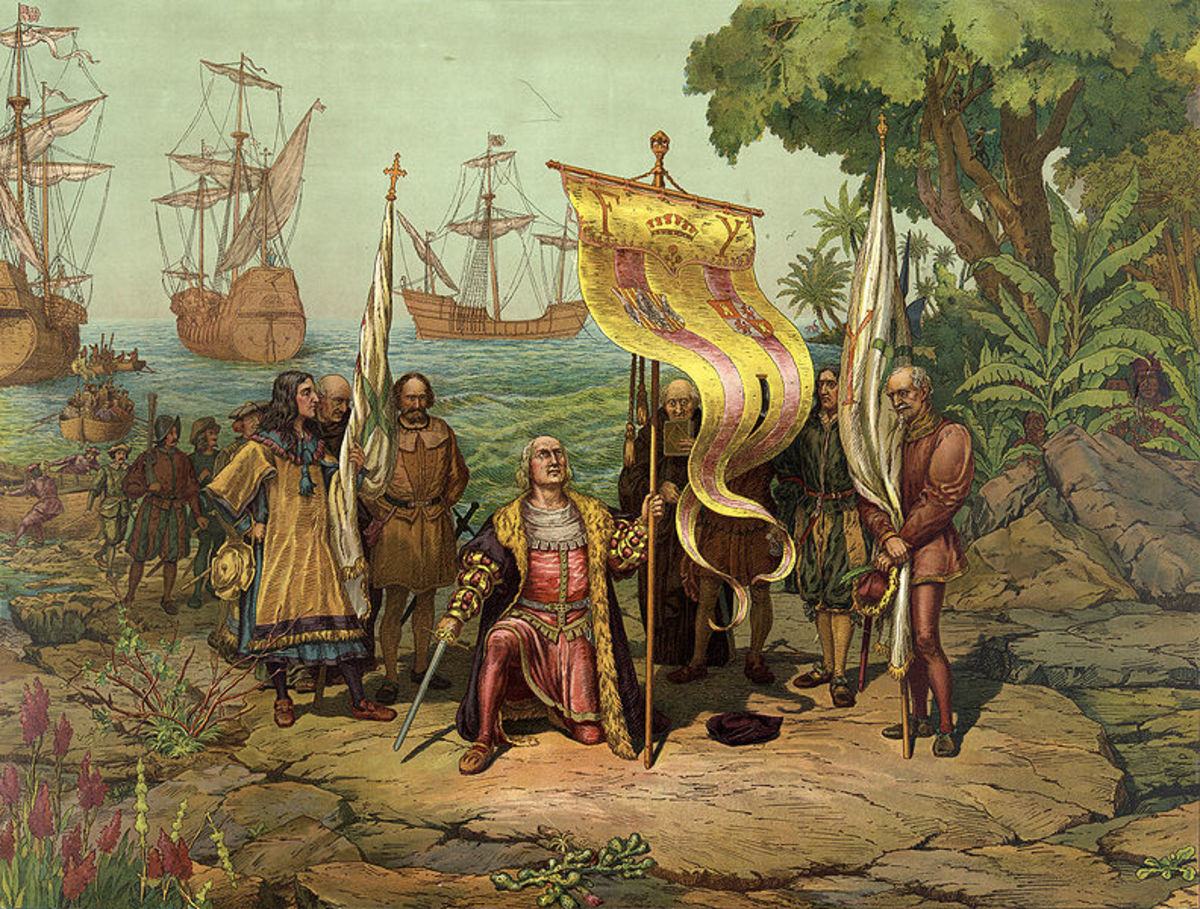
Literary Style
European Explorers
The Early American writings from the European explorers are primarily in the form of narratives and letters. These letters describe the explorers’ travels and discoveries, and serve as a report for the monarchs for whom they traveled. Because many writings were used to report progress to the monarchs the accounts may have romanticized the explorers’ experiences in the New World and served as propaganda for their work.
Christopher Columbus offers a description of the New World to Luis de Santangel in a letter about his first voyage "many rivers, good and large, which is marvelous…lofty mountains, beyond comparison…trees of a thousand kinds…they never lose their foliage…green and as lovely as they are in Spain in May”.
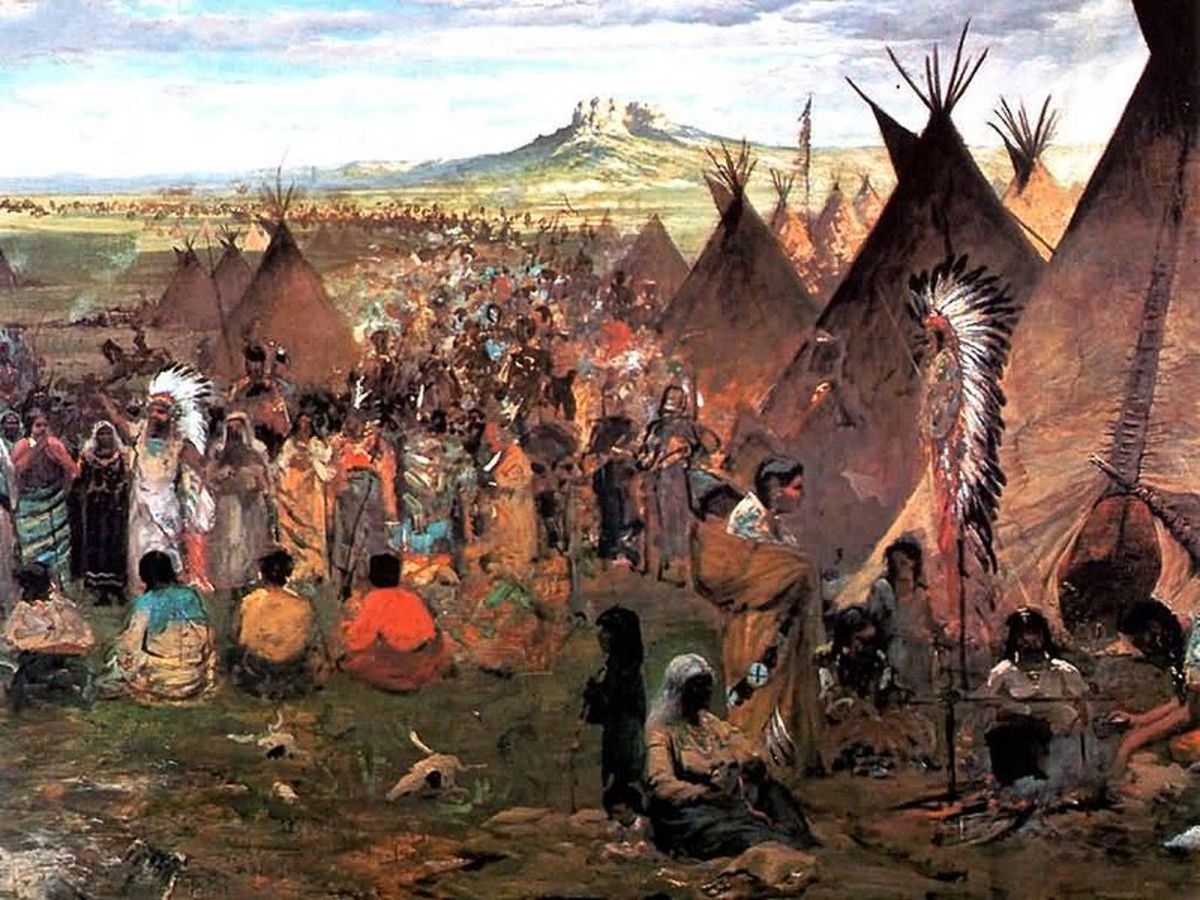
Native Americans
Native American literature evolved from the oral traditions of storytelling and cultural traditions of narratives, rituals, and ceremonies of the Native American people. The Native American people did not have a writing system so when the explorers discovered America there was no written Native American literature, it was all oratory. Storytelling was a tradition passed down through the generations.
These stories included myths about immortal beings to explain creation and natural occurrences beyond human control. “The Iroquois Creation Story” tells the tale of a woman bearing twin sons, an evil son and a good son who enriches the earth by “first he took the parents head...created an orb…and it became of a very superior nature to bestow light upon the world”. The myth tells how the good son creates he sun and moon, and humans and animals for sustenance. This story of Mother Earth and the battle of good and evil is a creation myth similar to many other Native American stories
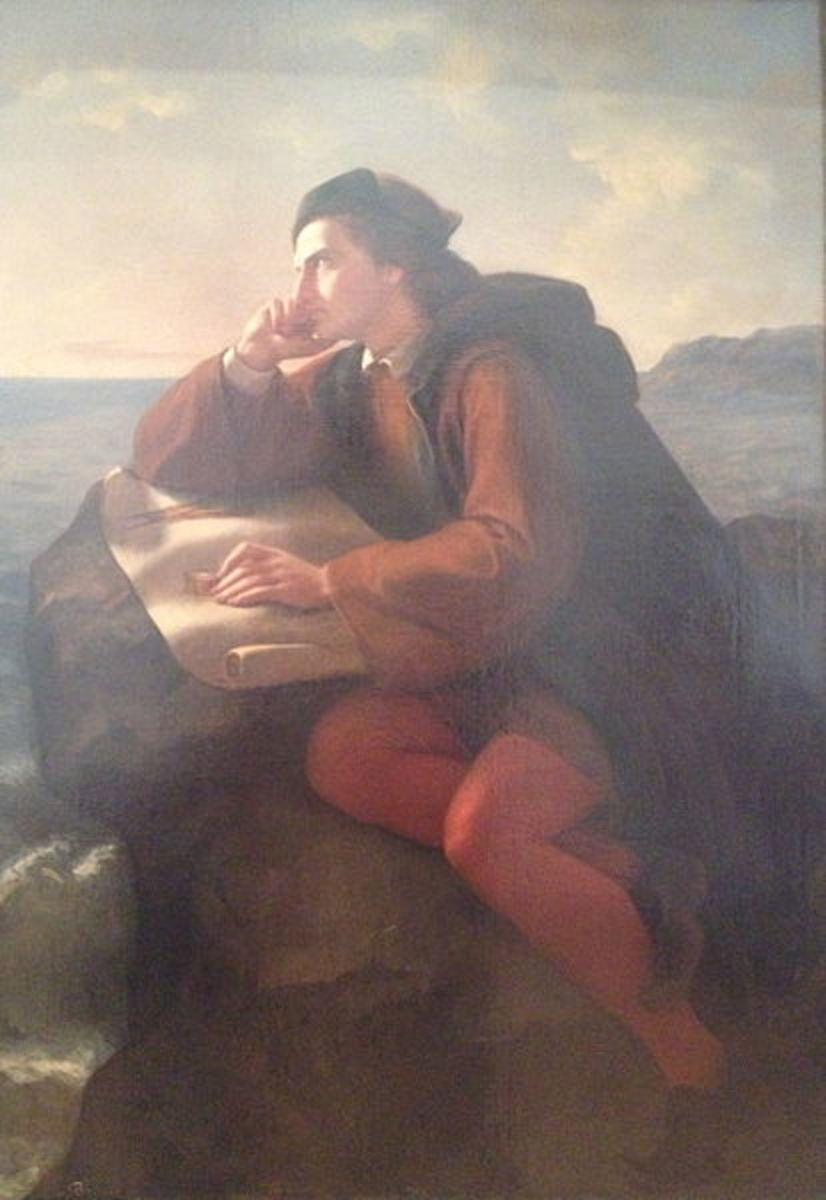
Influences
Political
Early American literature was influenced in many ways. The outside influences are reflected in the literature of the European explorers and the Native Americans. The European explorers’ literature was shaped by the political influences of the European monarchs that they traveled for. The explorers needed to justify their travels. In their letters to their homeland they would describe the beautiful landscapes of the New World and the abundant resources to show the value of their travels to their country.
Without justification the monarchs would no longer fund their journey and would send others to take over the exploration. The monarchs expected results so the explorers’ letters needed to convince that their work was valuable. Columbus writes such a letter in “From Letter to Luis de Santangel Regarding the First Voyage” in which he writes the first printed description of America that is translated and printed throughout Europe.
At this time the Native Americans had only oral stories. These stories did not offer specific political influence, but the traditions of the tribe could be accounted in stories. From a political perspective, rituals, ceremonies, and narrative stories could recount the positions held within the tribe and the structural relations of the community. Stories could also tell of past experiences with outside groups, such as the explorers.
David Cusick, from the Oneida Reservation in Madison County, New York, provides the “Iroquois Creation Story,” which is formed from the collected myths of 25 versions, and is influenced by the political threat of Andrew Jackson’s election to presidency and the forces against the Native American people, but this story is not written until the late 1700s. The written accounts of Native American stories were also recorded by Spaniards in journals, such as Juan Manje and Pedro Font in the late 1600s.
There are no earlier written Native American accounts because they did not have a writing system. We can assume that the political influence of the European explorers and their monarch taking their land and enslaving them would be reflected in their stories, some of which are written about later in history when Native American literature moves to the written format, roughly around the mid-1700s.
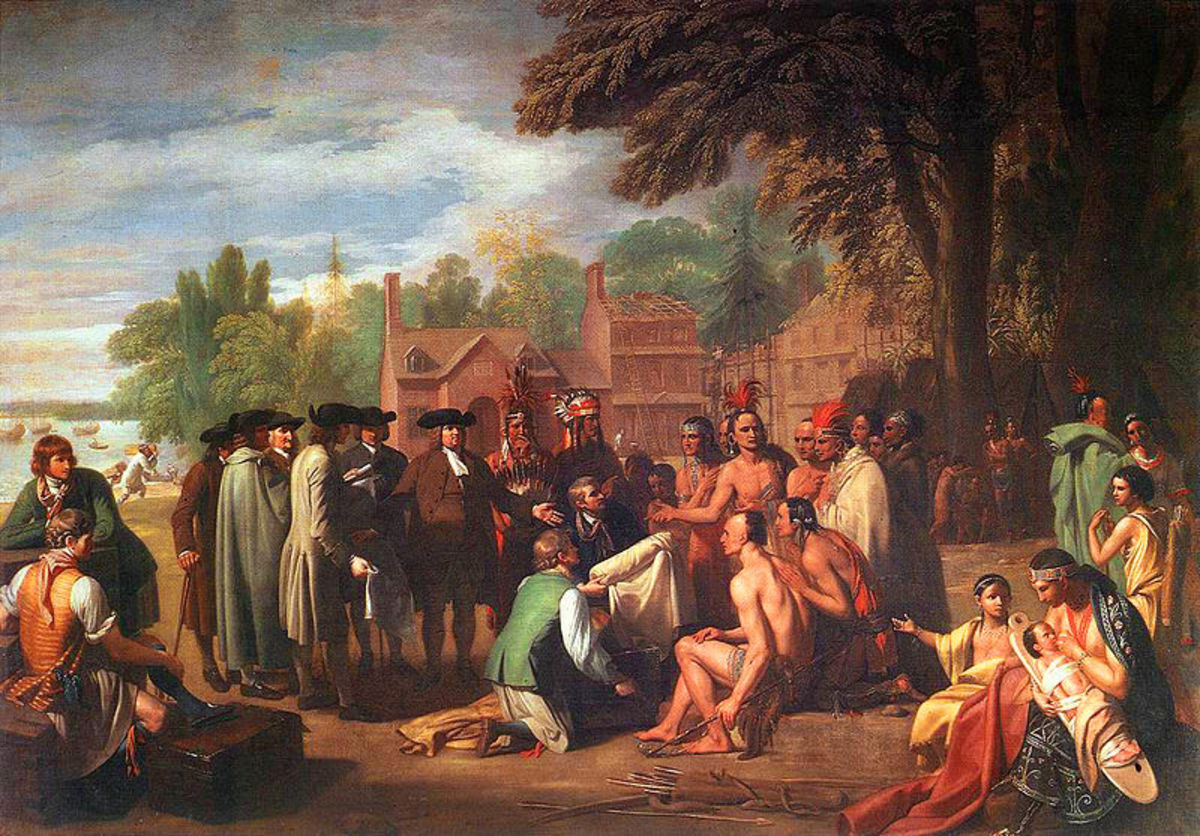
Culture
Cultural influences affected early American literature in several ways. Native American literature reflects culture by including the oral passing down of traditions, rituals, and ceremonies. These stories serve to maintain preserve the art and tradition of the various tribes. Stories were passed down from the elders to the younger generations to carry on the Native American culture. The hostility of the European explorers to this time-honored culture and lifestyle changed the lives of Native Americans forever.
European explorers brought their own culture from their homelands. The early American writings do not include many cultural references, in regard to ceremony or art, but it does offer a clear respect and love for their home country and the goal of pleasing the monarchs that they serve.
Columbus writes to Ferdinand and Isabella “the lands which here obey Your Highness” presents the dedication to the monarchs. The letters from the explorers present disdain for the culture of the Native Americans, considering them pagan savages, such as when Columbus writes about the Native Americans “encompassed about by a million savages, full of cruelty”. The explorers did not respect the Native Americans’ culture, they instead chose to overthrow them and change their way of life.
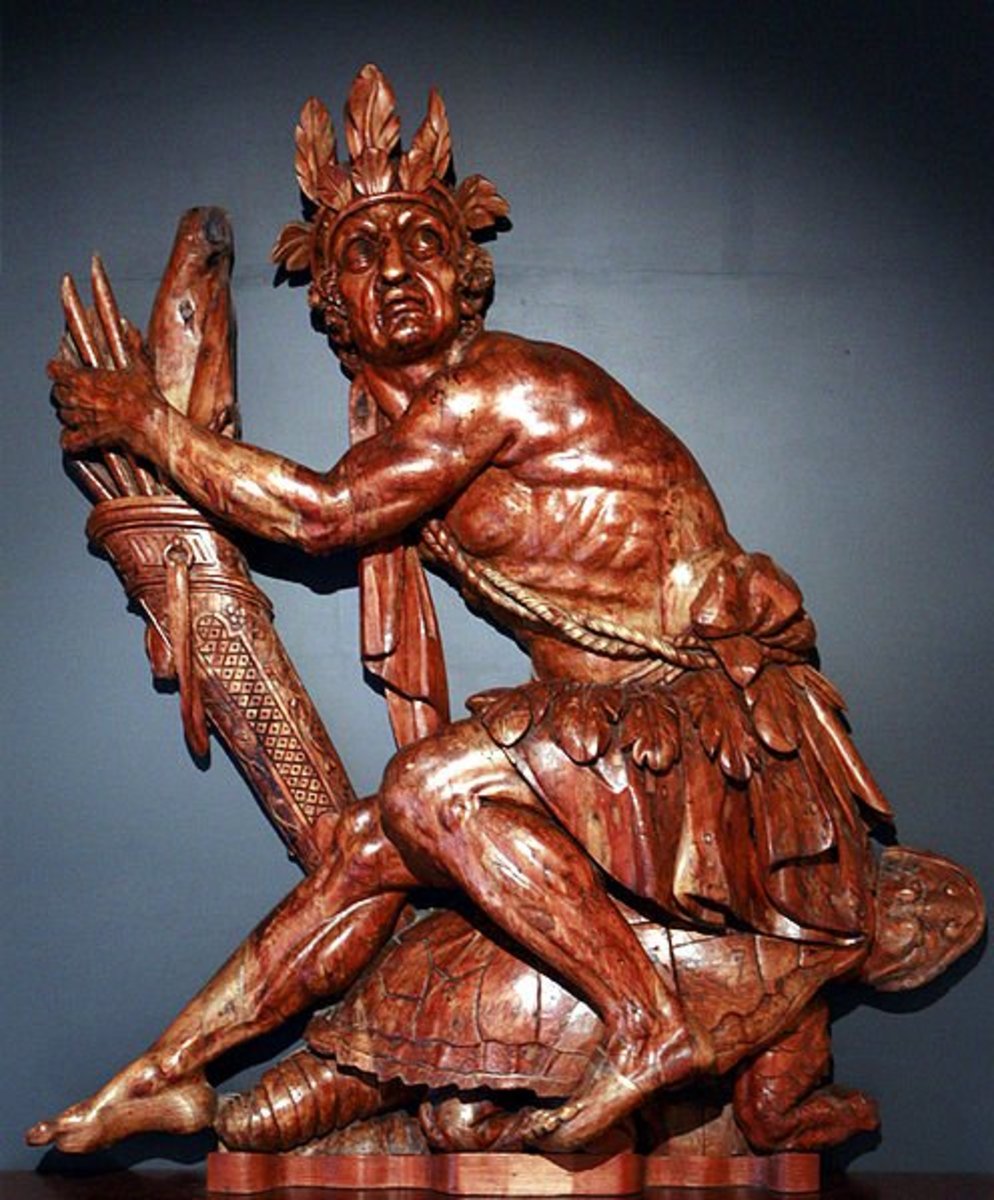
Religion
Religious influences can be seen in both European explorer and Native American literature. The European explorers often refer to their Christian values and serving God in their letters and narratives. Preserving Christianity and converting the pagans to their religion was important to the explorers.
Columbus describes his worry about being away from the church in his letter to Ferdinand and Isabella “so separated from the holy Sacraments of the Holy Church, my soul will be forgotten if it here leaves my body”. Alvar Nunez Cabeza de Vaca describes the explorers’ religious zeal in his narrative “From the Relation of Alvar Nunez Cabeza de Vaca” “strangers vie in approbation with those motivated by religion and loyalty”. The Native Americans’ religion reflected their honor of nature and earth.
The Native American people celebrated spiritual presence in all things. Their creation myths offer examples of animals and people with supernatural powers, and the earth as a vessel of sustenance. Their religious ceremonies and rituals were passed down via oral storytelling.
“The Iroquois Creation Story” shares a version of the Mother Earth myth along with examples of supernatural animals “the turtle increased every moment and became a considerable island of earth”. Native American literature offers the influence of the importance of nature and honoring the earth.
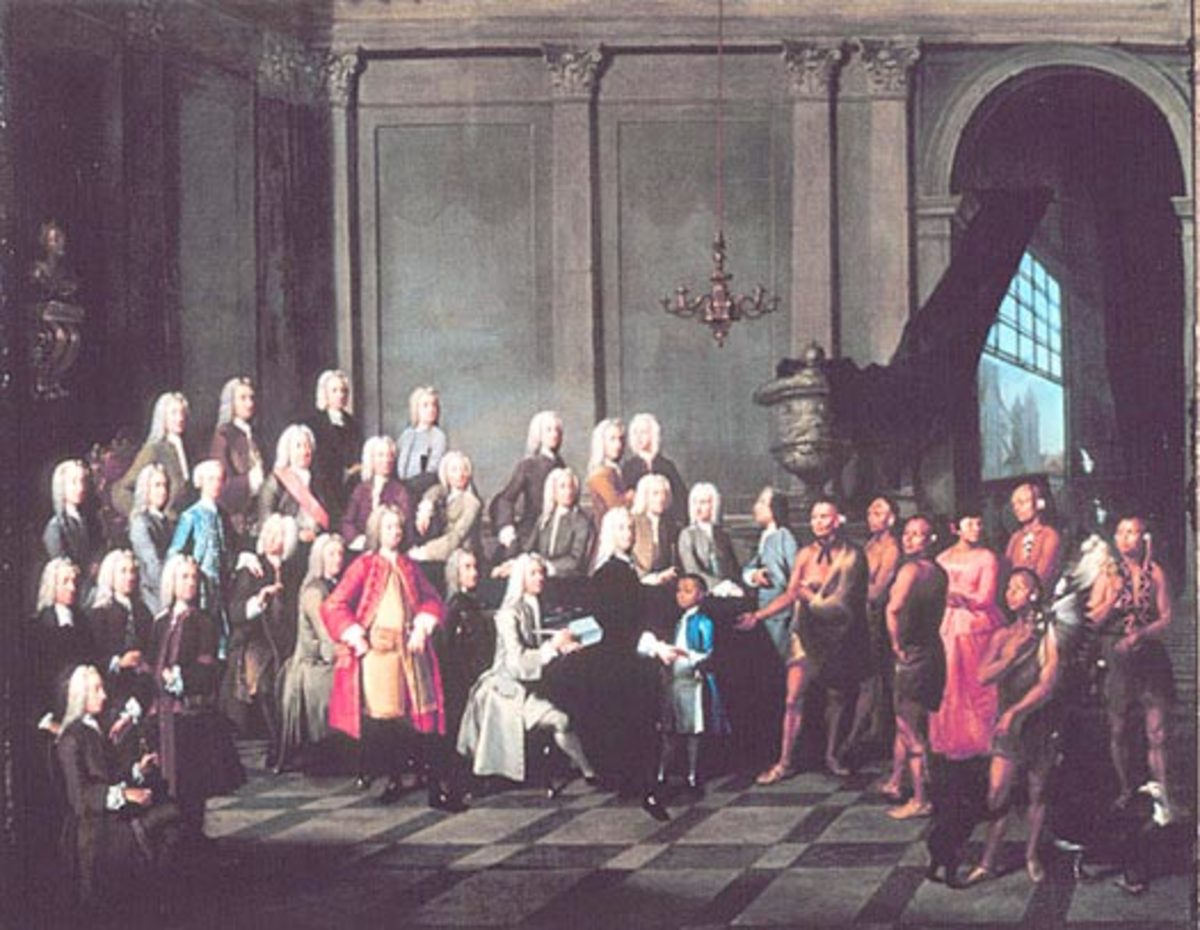
Modern American literature evolved from the early foundations of the country’s literary ancestors. The European explorers brought their writing system with them to the New World. They wrote journals, letters, and narratives of their experience in this new place.
Eventually the Native Americans adopted written language, but in the time of Columbus in 1492 Native American literature was completely oratory. Oral storytelling was the way that history, culture, and religion were passed down. The practical accounting method of writing from the European explorers along with the creative storytelling of the Native Americans can be credited with the origins of American literature.







